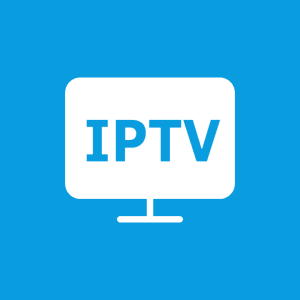How IPTV Works: Your Complete Overview to Streaming TV Online
IPTV, or Net Procedure Tv, represents a significant change in how we take in television content, moving far from typical broadcasting techniques to a more flexible, internet-based technique. By utilizing a client-server model, IPTV makes it possible for individuals to access a large array of shows with electronic packets transmitted over broadband connections. Nonetheless, comprehending the intricacies behind this modern technology-- such as its elements, benefits, and numerous service kinds-- can be essential for making educated choices in today's digital landscape. As we explore these aspects, the ramifications for your watching experience may end up being a lot more pronounced.
What Is IPTV?
In the realm of digital media, IPTV, or Internet Method Television, represents a transformative method to supplying television web content. Unlike standard broadcasting methods, which count on terrestrial, satellite, or cord systems, IPTV uses web procedure to stream content straight to gadgets such as televisions, smart devices, and tablets. This technology makes it possible for individuals to access a wide range of shows with high-speed net links, supplying versatility and benefit.
IPTV can be classified into three key solution models: real-time television, video on need (VOD), and time-shifted television. Live tv enables customers to view broadcasts in real-time, while VOD gives access to a library of material that can be viewed at the visitor's benefit. Iptv. Time-shifted tv allows viewers to see shows at their recommended time, even if they initially broadcast live
Moreover, IPTV often integrates interactive features, such as electronic program overviews and video recording capabilities, improving the watching experience. As consumers increasingly demand tailored material and on-demand solutions, IPTV sticks out as a compelling service, improving the television landscape and offering extraordinary alternatives for viewers worldwide.
Exactly How IPTV Functions
The smooth integration of innovation and user experience specifies how IPTV runs. Net Protocol Television (IPTV) delivers television programs and other multimedia web content via net procedures, instead of standard terrestrial, satellite, or cable layouts. This procedure involves encoding video material right into electronic packages that are transmitted over a broadband internet connection.
IPTV typically utilizes a client-server design where content is saved on a web server and sent to the customer's device-- such as a clever television, computer, or smart phone-- upon demand. The material delivery is assisted in through a set-top box or an application that decodes the incoming data and presents it on the display. Significantly, IPTV operates a live or on-demand basis, allowing customers to access a wide array of channels and programming.
A critical facet of IPTV is its dependence on a durable broadband link, which makes certain smooth streaming and high-quality video playback. Additionally, IPTV systems often include innovative attributes such as digital program guides (EPGs), time-shifting, and video-on-demand (VOD), enhancing the viewing experience. Overall, IPTV represents a substantial evolution in just how customers take in television content, leveraging the power of the web for enhanced ease of access and flexibility.
Advantages of IPTV
While typical television approaches commonly limit viewer selections and availability, IPTV provides many benefits that improve the overall watching experience. One of the key advantages is the substantial range of material readily available. Customers can access a large collection of channels, on-demand programs, and films, customized to private preferences.
Furthermore, IPTV supports navigate to this site several tools, enabling users to stream material on smartphones, tablet computers, smart TVs, and computer systems. This flexibility ensures that customers can watch their preferred programs anytime and anywhere, as long as they have a net link. In addition, IPTV commonly includes interactive aspects, such as record, time out, and rewind capabilities, offering customers with greater control over their checking out habits.
Cost-effectiveness is one more remarkable benefit. visit Numerous IPTV services use affordable rates compared to traditional cable television memberships, often without long-term contracts or hidden fees. This cost makes it much easier for customers to discover numerous channels and web content without substantial financial dedications.
Lastly, IPTV generally boasts exceptional picture quality, including high-def and 4K alternatives, boosting the total watching experience. Collectively, these benefits make IPTV a compelling selection for modern-day visitors looking for versatility, range, and quality in their home entertainment alternatives.
Types of IPTV Provider
IPTV solutions can be classified right into several distinct kinds, each providing to different audience needs and choices. The key classifications consist of real-time television, on-demand content, and time-shifted IPTV.
Live tv IPTV provides real-time streaming of broadcast networks, permitting customers to view programs as they air. This service closely appears like typical wire TV, offering accessibility to a series of channels, consisting of news, sports, and entertainment.
On-demand IPTV, on the various other hand, allows users to pick and watch content at their ease. This includes films, collection, and docudramas that can be streamed whenever the viewer chooses, offering versatility and customization.
Time-shifted IPTV integrates components of both real-time and on-demand solutions. It enables visitors to pause, rewind, or document live broadcasts, providing the capability to regulate their viewing experience. This solution is especially helpful for those with hectic routines, as it suits visitors who may miss out on online broadcasts.

Establishing IPTV
Setting up IPTV includes numerous vital steps to guarantee a smooth viewing experience. You need a steady internet connection, ideally a broadband solution with a minimum speed of 10 Mbps for basic definition and at least 25 Mbps for high interpretation streaming. This makes certain marginal buffering and a smooth playback.
Next, pick an IPTV provider. Research various alternatives, contrasting their channel offerings, rates, and customer evaluations. When you've picked a provider, you typically obtain login credentials and a web link to access the IPTV solution.
To start streaming, you'll need a suitable device - Iptv. Several IPTV solutions can be accessed through Smart Televisions, streaming boxes like Roku or Amazon Fire TV, computer systems, Our site or mobile devices. Download and install the matching app or software program for your selected system
After setup, visit using your qualifications and set up any essential settings, such as adult controls or channel choices. Link your tool to your television by means of HDMI, and you're ready to take pleasure in a vast selection of channels and on-demand content. Regularly inspect for software program updates to improve efficiency and security, making certain an optimal IPTV experience.
Conclusion

IPTV, or Internet Method Television, represents a significant change in how we take in television material, moving away from traditional broadcasting techniques to a much more adaptable, internet-based strategy.In the realm of digital media, IPTV, or Internet Procedure Television, represents a transformative approach to providing tv web content.IPTV can be classified into 3 primary service models: live television, video on demand (VOD), and time-shifted television. Net Protocol Television (IPTV) delivers television programming and other multimedia content via internet methods, instead than typical terrestrial, satellite, or cable layouts. On the whole, IPTV stands for a significant evolution in exactly how audiences take in television content, leveraging the power of the net for improved access and adaptability.